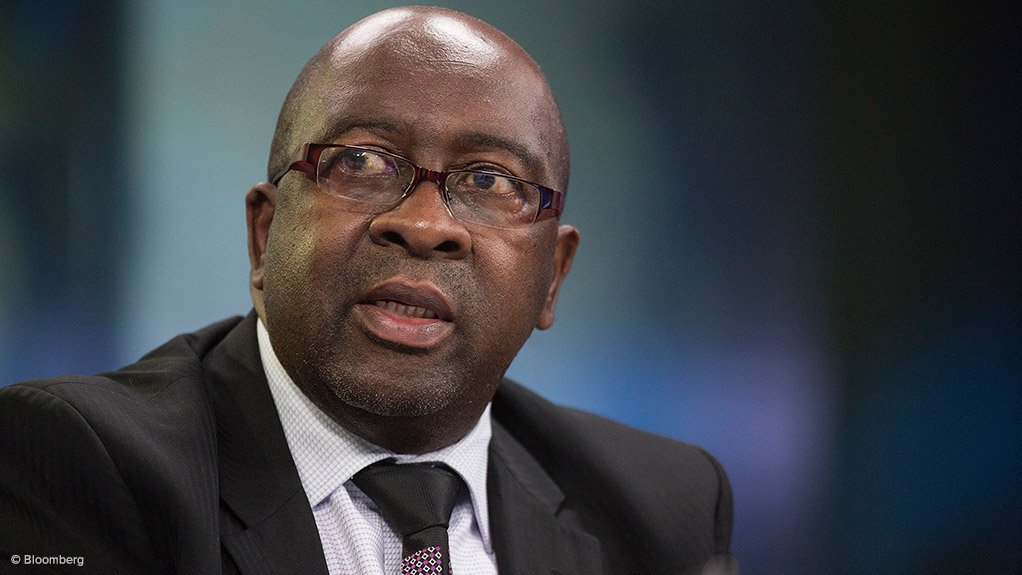JOHANNESBURG (miningweekly.com) – Amid a growing appreciation by government of the challenges and impasses constraining the South African mining sector, consulting group Deloitte believes it unlikely that Finance Minister Nhlanhla Nene will, during his 2015/16 National Budget speech next month, introduce new mining taxes or increase the sector’s prevailing tax burden.
“Our view is that he is unlikely to introduce or raise taxes in the mining sector [as a result of its] current performance. We do, however, expect him to acknowledge stagnation in the sector and intimate what future steps government will be taking to try and stimulate the sector.
“The discussion is no longer about how much revenue [government] can get from the industry, but rather how it can assist it,” Deloitte mining tax specialist director Alex Gwala told a prebudget media roundtable on Wednesday.
Amendments to mining tax legislation were also unlikely to precede the Davis Tax Committee assessment of the regime and clarification of the Mineral and Petroleum Resources Development Act (MPRDA) Amendment Bill, which President Jacob Zuma this month referred back to the National Assembly, citing possible unconstitutionality.
“Zuma stated on January 10 that ‘this year, we must finalise amendments to the applicable laws to ensure that mineworkers and mining communities share equitably in South Africa’s mineral wealth’.
“We [thus] expect Nene to give clarity on whether these amendments [would] include any tax-related legislations. In my opinion, the MPRDA Bill [will be passed this year], it’s going to happen… it’s positive,” Gwala told Mining Weekly Online.
NARROWED MINING COFFERS
According to National Treasury and the South African Revenue Service (Sars), income tax revenue from the mining sector had increased by an average of R1.5-billion a year, from R9-billion in 2009/10 to R15-billion in 2013/14.
“However, we are likely to see a reduction in this trend in 2014/15 as a result of reduced company profits in the face of weak commodity prices, unforeseen shocks to economic activity, labour disruptions, safety stoppages, as well as the impact of energy shortages,” he noted.
According to 2014 tax statistics, while value-added tax (VAT) remained the second-largest source of tax revenue for the fiscus – contributing 3.8% – the mining industry negatively contributed to the overall VAT collections owing to the large volume of zero-rated mineral exports, whose refunds accounted for 22% of the total VAT refunds by Sars.
“Since introduction in 2010, mining royalty collections have remained insignificant in comparison with the collection of other taxes. The poor performance of this sector is also reducing these collections further, as the royalty is calculated on [dwindling] gross sales,” Gwala said.
AUSTERITY VS EXPANSION
Commenting more broadly on the firm’s budget speech expectations, Deloitte Africa Taxation Services managing partner Nazrien Kader told the roundtable that Nene would be under “intense scrutiny” during his February 25 address, and would take to the podium against the backdrop of a much-debated electricity crisis, moderating inflation, a volatile rand, subdued economic growth and a rising government wage bill.
Globally, ratings agencies would also be watching closely, with at least one major rating agent having South Africa’s current sovereign rating on a ‘negative’ watch.
“Given the Presidential commitment to an ambitious mandate involving a significant investment in infrastructure to revitalise the economy, all eyes will be on Nene as he tries to balance expansionary measures with austerity ones.
“This while staying the course set by his predecessor to limit spending and hold real non-interest expenditure growth to a yearly average of 1.8% over the three-year spending period,” she said.
Moreover, while raising personal taxes may be “unwise and unpopular”, Kader said it was conceivable that Nene would increase the marginal tax for individuals to 45%, while maintaining a robust approach to the alignment of tax policy with global standards.
Focus would also likely intensify on compliance by high-net-worth individuals and companies to counteract tax-base erosion and profit-shifting.
EMAIL THIS ARTICLE SAVE THIS ARTICLE
To subscribe email subscriptions@creamermedia.co.za or click here
To advertise email advertising@creamermedia.co.za or click here











